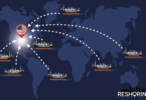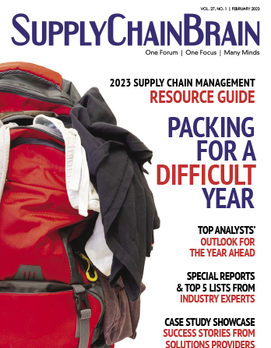
Think Tank
Elevating Last-Mile Delivery for Improved Job Site Productivity

Photo: iStock.com/WUT789
A major player in the global economy, the construction industry should be a leader in labor productivity. However, according to a McKinsey report, “global labor-productivity growth in construction has averaged only 1% per year over the past two decades, compared with growth of 2.8% for the total world economy.”
No industry is immune to interruptions in productivity. Commercial businesses in particular deal with many factors out of their control: notably, unpredictable weather at job sites, significant supply chain disruptions and labor shortages. Other factors that harm work productivity include:
- Poor visibility. Workers need more transparency into delivery timelines. This uncertainty can make it difficult for them to plan and proceed with their tasks.
- Unprofessional or unskilled deliveries. Materials and equipment, such as HVAC units, lumber, tools and hardware, require great care when loading, transporting and unloading at job sites. When these are mishandled, an operation can be prolonged, as workers must wait for replacement materials to arrive.
- Extended waiting periods. Commercial jobs rely on a wide range of equipment and parts. When these items aren’t delivered on time, it can bring a schedule to a grinding halt.
Since many of these issues are the result of defective distribution processes, imagine how much productivity can improve with enhanced, high-quality and consistent last-mile delivery. Following are some ways that this can be executed.
Providing consistent deliveries. Delivery consistency impacts many parts of commercial productivity, from the quality and efficiency of job completion to the satisfaction of a customer on the receiving end of a job. Waiting on the delivery of items can severely delay a project’s schedule. Additionally, having inconsistent operational procedures can lead to hiccups in these processes down the line.
To avoid this, commercial businesses should work with a trusted partner that can provide commercial workers the same quality, speed and efficiency for every shipment. Consistent, quality deliveries streamline workflows for commercial businesses with multiple locations.
Improving last-mile visibility. Increased delivery visibility and flexible options allow workers to efficiently schedule their jobs. Since many projects rely on the transporting and installing of special equipment, companies must have flexible options and visibility in place throughout the logistics process.
Many commercial businesses rely on rigid delivery systems while waiting on job site parts to arrive. For example, an HVAC systems dealer must wait for a delivery truck to bring over equipment to the shop or warehouse once a day. That means the dealer must plan installations around this single timeframe. HVAC technicians must move between the warehouse and work site to pick up these items, further slowing down the installation process. All of this can cause unnecessary delays.
With improved last-mile delivery options, companies can tailor deliveries to their requirements, with access to same-day or scheduled shipment options. This often involves third-party providers with advanced technology, who can provide real-time delivery information such as equipment pickup confirmation or alerts about potential delays. When workers have more control and insight into the delivery of equipment, they spend less time waiting, and can reallocate time and resources to complete the job at hand.
Using professionals for efficient deliveries. Businesses save time, energy and money by vetting a delivery partner to ensure it has experience in loading, transporting and unloading the necessary materials. Imagine that an HVAC systems technician is relying on a fragile and heavy part to install air conditioning in a customer’s home. An experienced delivery professional knows how to load and place the part in the shipment truck to ensure against damage, especially when on the road. What’s more, the right partner will provide professionalism through each step of the delivery process.
Enhancing last-mile delivery for better productivity. A $265 billion annual profit pool awaits disruptors in the construction industry. This presents heightened opportunity for businesses to streamline processes and enhance productivity. By optimizing the supply chain, specifically the last mile, they can provide commercial businesses with the tools they need to amplify productivity and remain profitable. In today’s environment, labor is scarce and deadlines tight, so companies need to improve productivity at every step of the job. Enhancing last-mile delivery with increased visibility, expert care when transporting materials, and working with the right delivery team can ensure that no profit is left on the table.
Brian Kava is chief executive officer of Pickup.




